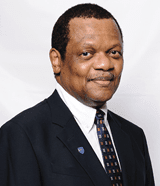National Issues
Youth Participation in Politics: An Unavoidable Necessity for National Development -By Ogbole Agala Esq.
If national development is a key objective of the Nigerian government, the system at all levels must support youth participation in politics by playing certain roles adequately. First, there must be deliberate promotion of an enabling environment for youth participation in a broad range of endeavours and areas like electoral and legislative processes, public administration and governance at local, state and national levels. This can be attained via the instrumentality of legal frameworks, policies and plans.
The pages of history are replete with names and accomplishments of young Nigerians whose active political participation ensured the attainment of independence from colonial rule; and determined the shape of subsequent self-governance.
Posterity will perpetually make reference to vibrant heroes like Samuel Ajayi Crowder, Herbert Macaulay, H.O. Davies, Anthony Enahoro, Nnamdi Azikiwe, Obafemi Awolowo, Aminu Kano, Ahmadu Bello, to mention but a few; who took the bull of politics by the horns, bringing national development – against all odds.
However, there is a dearth of youth participation in contemporary Nigerian politics. The reasons are not farfetched, as accurately presented in the words of Alvin Toffler: “the secret message communicated to most young people today by the society around them is that they are not needed, that the society will run itself quite nicely until they — at some distant point in the future — will take over the reigns…”
Diverse hindrances constitute clogs on the wheels of youth participation in politics. Other than engaging in voting exercises, politics is not accessible to the average Nigerian youth. Most successful young politicians are from affluent families with long political histories.
Also, there is strong a negative feeling in the minds of people that politics is for the corrupt. When compared with older politicians, young people encounter economic restraints, and this affects their public support. There are also problems of cabalism and perceived insecurity, if a youth is determined to come out as a sincere politician. These and many other factors limit the opportunities for youth participation in politics.
It is noteworthy that these challenges are not peculiar to Nigerian youth. In a survey conducted by the UN IANYD in August 2012, a majority of 13,000 respondents expressing their voices from 186 countries highlighted that the main challenges for youth were limited opportunities for effective participation in decision-making processes.
With limited opportunities and exposure to meaningfully participate in inclusive decision-making processes, young men and women feel excluded and marginalized in their societies.
Considering the enormous benefits of youth participation in politics, it is easily discernable that Nigeria is missing out on a lot. Youth participation guarantees the sprouting of fresh and innovative ideas to ensure national development and combat contemporary challenges. Nigeria is in dire need of such. Young people are more prone to the exercise of zeal, enthusiasm and flexibility when it comes to decision making aimed at the betterment of society.
Since the youth constitute that bulk of the populace, their involvement in politics will enable them frame more effective policies on issues affecting them, as opposed to older politicians who may be out of tune with contemporary realities.
Furthermore, young people can engage in peace building, leading non-violent revolutions, using new technologies to mobilize societies to bring about change.
Sanad Pokheral rightly said that “with energy, ambition and belief in their own capabilities, young people can be powerful agents of positive change…”
One may ask how the foregoing can be achieved. Effective and meaningful youth political participation has any or all of three attributes: it can be consultative; it can entail youth-led participation, where young people have a direct impact on decision-makin within their own communities; and it can involve youth collaborative participation, where young people effectively take part in regular political decision-making processes.
If national development is a key objective of the Nigerian government, the system at all levels must support youth participation in politics by playing certain roles adequately. First, there must be deliberate promotion of an enabling environment for youth participation in a broad range of endeavours and areas like electoral and legislative processes, public administration and governance at local, state and national levels. This can be attained via the instrumentality of legal frameworks, policies and plans.
Secondly, there must be promotion of young people’s skills and capacities to participate actively in democratic processes. This can be attained by the establishment of leadership training institutions and allied facilities. There should also be opportunities for youth internships in legislative houses. Political participation should go beyond mere casting of vote. Young people must be involved in the entire election process. They may even form political parties.
Thirdly, political awareness should be given to students at primary, secondary and tertiary levels. Young students should be encouraged to participate in politics.
Fourthly, young-people-led community development programs and volunteering organizations should be supported by the government. Youth movements should be dealt with in a respectable way, with priority given to their voices.
Affirming the words of Alvin Toffler, “we need all the energy, brains, imagination and talent that young people can bring to bear down on our difficulties. For society to attempt to solve its desperate problems without the full participation of even very young people is imbecile…”



















